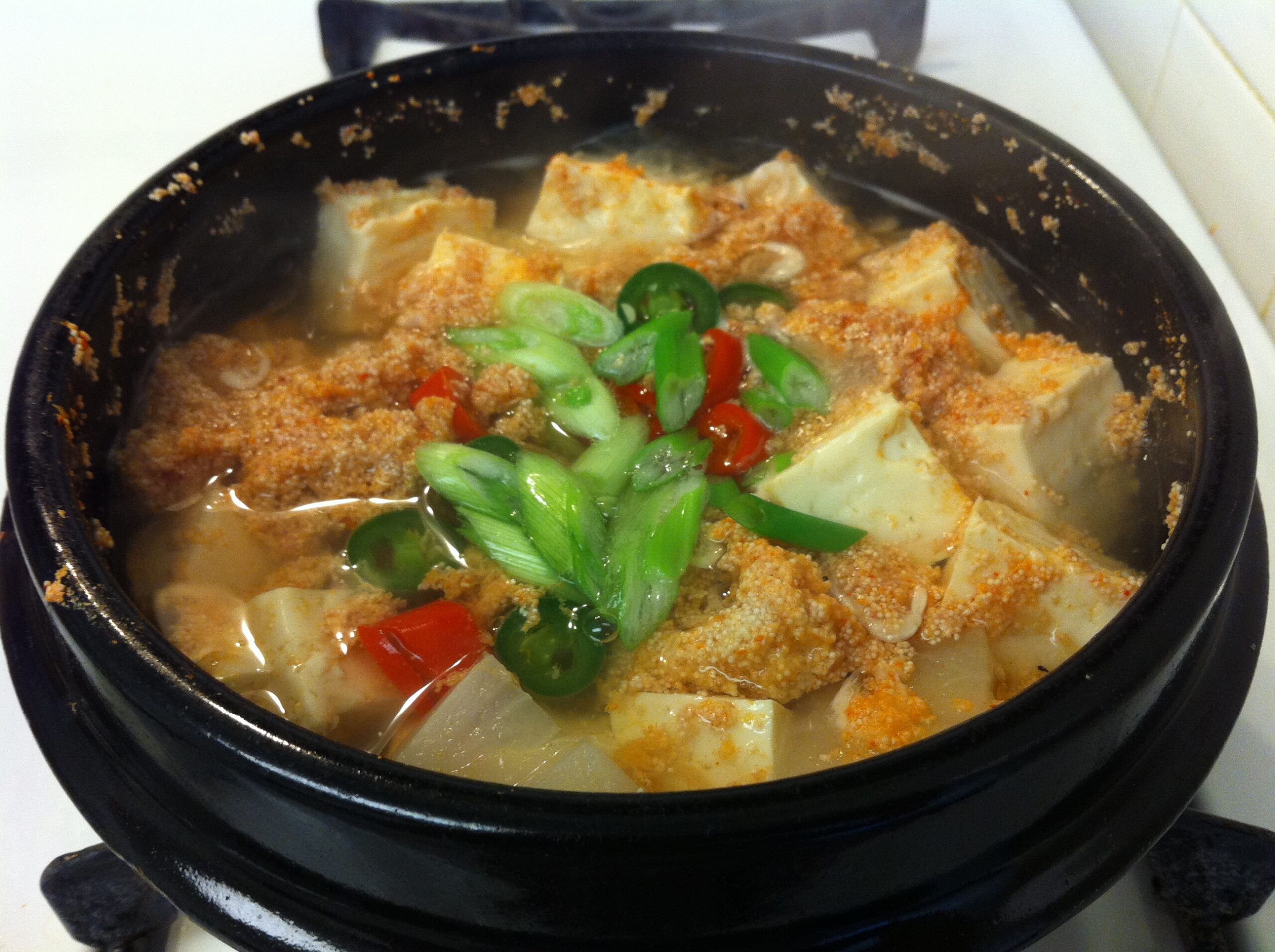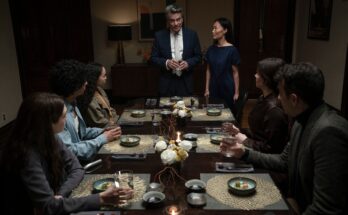Want to hear more from the actors and creators of your favorite shows and films? Subscribe to The Cinema Spot on YouTube for all of our upcoming interviews!
Managing editor & film and television critic with a Bachelor's of Arts in English Literature with a Writing Minor from the University of Guam. Currently in graduate school completing a Master's in English Literature.
My interview with USC Graduate alumnus Hannah Bang took place on Saturday, March 13th at 6:00 pm PST. Her Korean film, SOAK, premiered at the South by Southwest (SXSW) film festival earlier this week. In this article is our conversation.
Warning: Some minor spoilers ahead for those unfamiliar with the story and/or have not yet seen the film!
Introduction
John Tangalin: My name is John Tangalin, and I am a film and television critic for The Cinema Spot. [We are an] international site [for] news-reporting, editorials, and reviewing. I was fortunate enough to have seen your film which is part of the South by Southwest Film Festival. You’re actually the first Master’s student, the first person [I know of] who is submitting a Master’s thesis as your short film.
Hannah reacted with as much surprise as I did when I first learned of this.
JT, con’t.: My first question is: How did you put this film together for your graduate school? Was it through footage, or did you submit your thesis through just the script?
Hannah Bang: So how our school works is … you have a couple of choices in terms of how you want to graduate. [O]ne of the choices is, actually, a class where [in] one semester you spend the whole semester writing the script. [In] the next semester, you sort of find your own time to go shoot the movie. And then the semester after that, you do post-[production].
JT: So you kind of did both where you did the script and then the footage?
HB: [I]n order to be in the production — [via] the class where you shoot the footage — you have to be in the prep class where you submit the script.
The Writing Process
JT: What was the writing process like, just putting your film together?
HB: It was a pretty long process. [A]ctually, the script that I wrote in the prep class is not what this movie is. I finished that class, and then at that point, I was still planning to shoot in LA with a Korean-American family. [I]t was still about familial conflicts and sort of the familial trauma. [T]hat was still the topic, but it was much more of a genre film until my producer convinced me to consider shooting in Korea. At first, I was sort of intimidated by the idea because I had never done that before. But [I] decided to do it and then started reworking the script and the characters and the tone and the mood. Everything changed so drastically that it became a whole different script by the end. I think it became something that’s a lot more raw and organic than initially planned. It was actually mid-semester that, I think around Thanksgiving, I flew to Korea about a month before I was supposed to shoot. [I] started doing prep there, and we were done by the end of the year.
John Is A Graduate Student, Too.
JT: Nice. … I’m a graduate student also.
Hannah was surprised by this fact.
JT, con’t.: Yeah, this is my second semester, so I’m just wondering how–
HB: Where? Which school?
JT: At the University of Guam.
HB: Oh! Are you in Guam right now?
JT: Yeah. That’s why we ha[d] to [compromise on the meeting] time because of the time difference.
HB: I see. What time is it?
JT: It’s actually 11:00 AM right now.
HB: Oh, okay. Sunday?
JT: Yes. [O]ur motto is, “Where America’s Day Begins” because I guess our time is ahead of the U.S. [W]e’re not in the future, but you know, we–
HB (laughs): Yeah, no, I get it. Like Korea[‘s time] is also way ahead [of the U.S.].
JT: Yeah. [B]ecause I think with grad school I did have that choice of putting together a script. But I’m not, I don’t think I’m ready for that just yet. I’m just focusing on the traditional thesis, but I’m really glad that you’re submitting an MFA thesis … for this film festival because everyone else, I don’t think there’s a lot of people that are doing that.
HB: Yeah, that’s cool!
At this point, I should note that we were both nervous as SXSW is our first film festival experience — Hannah submitting her film project, and I conducting my fifth interview ever. This current discussion, however, started to give each of us a sense of comfort.
The Filming Process
JT: What was filming like? Especially [since] you have an all-Korean cast and a primarily, predominantly Asian crew.
HB: It was my first time working with actors in Korea and crew in Korea. [L]uckily, they were all really, really nice and patient. I was really worried that the discrepancy in how we work on set here versus there and how actors work would be different. And I think to an extent it was a little bit different, but we had enough rehearsal time to sort of work that out. Talk about it, find a middle ground to where I was meeting them halfway and they were meeting me halfway. It went pretty smoothly, I think mostly because the crew was also really nice and the actors were just really friendly. [T]hey were really open to learning about how sets here worked and how directors here approached things. It was a good learning experience, I think on both sides.
JT: By “here,” you mean in L.A. compared to Korea?
HB: Yeah.
The Meaning of SOAK
JT: What does the title mean to you, the title ‘SOAK’? I was really thinking it’s about the spa [scene]. But then going from there, I couldn’t really interpret my own [understanding of it].
HB: That’s a good question. This is a very kind of controversial, well, kind of title because a few of my friends were asking me the same thing. For me … the film talks a lot about violence, but in indirect and invisible ways. I think Yeonsoo (Do Eun Lee) is sort of in that situation where she is constantly surrounded by violence, and other people in these relationships are sort of intruding in her space. I kind of wanted to parallel that with sort of how water is. Visually, we start out in the spa and it’s subtle, but there’s a lot of water elements throughout the film. The mom is washing her clothes in the motel, and [Yeonsoo] is talking to her dad in the bathroom. I wanted it to feel like she is soaked in this atmosphere of violence and sort of neglect. In the end, when she is about to leave the motel, her mom asks about her uniform. She says [that] “it’s still wet, but I’ll just wear it anyway.” She’s leaving with wet clothes. You know, this is so subtle. I realized that I don’t think anyone will catch this. [F]or me, that was a thorough line. It’s like she’s walking around in clothes that are wet and it’s always this uncomfortable feeling of not quite being able to relax and kind of being on edge.
JT: Yeah. It’s, it’s sort of like when you’re putting your laundry … in the washer, it’s soaking in water. It’s between getting clean and being — in a way — dirty. [It’s] like you’re still in that middle ground [that] you were [referring to].
HB: Right, right.
Diving Into the Other Layers of the Story
JT: What are some of the themes — because I know you mentioned violence — are there other themes that you tackle in your short film?
HB: Familial relationships. I don’t know if it’s exactly a theme, but that’s certainly something I was playing with. I think all the characters have this sort of contradicting relationship where they love each other, they care for each other. [A]t the same time, their choices don’t always reflect that, or it reflects it in a way that’s not necessarily positive. [T]hat’s something that kind of goes on throughout the movie. I don’t want to spoil the ending, but even the ending is a reflection of that. [That is], the duality of family relationships, I guess, or parental-child relationships.
JT: Yeah. [Y]ou have Father (Minjun Kwak) who’s kind of the harsh love that you were talking about, but then Mother (Chaewon Kim) kind of has that love where she really loves her daughter, but it’s not in a really bad way. It’s just that you do have a line here that I noted. At the beginning [during] the spa [scene], where the mother says that “a woman always needs to take care of herself.” I think with Mother’s decision, it’s sort of that thing where she needs to take care of herself rather than face what is going on with Father, right?
HB: Right, right. I see what you mean. Yeah … I don’t think you can personally blame any of the characters for what they’re doing. And I don’t think you can say that their love is any less because of the choices that they make.
JT: Yeah. [T]he violence, especially with Father. [E]arlier, you were saying it’s not a direct [one. I]t’s like a verbal [attack] because I know there are some texts that he messages to Yeonsoo where he … compares her to Mother and it’s a love that we can’t understand. Because it’s like that in a lot of cultures. [T]he parents are, you know, they’re just something else, whereas the kids are still trying to develop.
HB: [D]efinitely. I think culture is a huge part of this in terms of how people perceive … or how generous [Mother and Father] are in terms of understanding [their] actions. I think from what I’ve seen varies a lot, depending on the culture of the audience.
Some Korean Food
JT: Speaking of culture, ‘though, every group … has their own cuisine that represents their race and of course the culture. [T]he food is one of those characters in films and television that don’t get enough credit, right? [W]hat is on the menu in your film; for example, when Yeonsoo brings up altang … into the discussion with Mother?

HB: [A]ltang is basic. Al is egg/ eggs, and tang is sort of a stew/ soup type thing. So egg stew. The restaurant she’s at is kind of like a seafood restaurant. That’s actually quite famous in Korea. [I]t’s sort of like an alleyway restaurant where [it is] run by like this old couple. [W]hat they actually serve slightly differs from what we had in the movie, but it’s both seafood. Sometimes they use fish intestines as well in the stew, so that’s actually what you see when she first walks in. They’re stirring the pot thingy and you see — I think — fish intestines there. It’s pretty good.
JT: Yeonsoo and Mother are also eating something in the motel. What is that?
HB: Oh, jajangmyeon! It’s a Chinese-Korean [dish]. It’s black bean noodles. [I]n Korea, you call it Chinese food but it’s actually not authentic Chinese food. I don’t think [so]. It’s a dish that’s sort of been Koreanized as it entered Korea, and it’s very popular, cheap delivery food that people get.

Father’s Role
JT: How would you describe Father? I know we were just talking about this, but there are some implications as to how he’s acting towards Mother and also with his daughter. I also want to get a little more understanding about his role in the film and what he’s going through.
HB: I think he is definitely a controlling and, to a degree … an abusive man, but he — in his own way, I think — loves his wife and daughter. [A]t this point [in the story], he is holding onto his daughter even stronger, more strongly because his wife’s left the house. [H]e’s constantly worried that he’s gonna lose his daughter as well. Yeah, so I think in the movie, his role is very limited and he’s very much just sort of a threat figure. But in terms of working with the actors, we talked a lot about [the characters], especially Yeonsoo and her relationship with her dad. I think it’s a little bit more layered than what we see in the film.
JT: Yeah. I can empathize with what Yeonsoo is going through because [of] parents asking, ‘[W]here are you? What are you doing?’ I’m just scared for her and especially what happens at the end. But also, Mother is hiding something from her daughter. What could that be? Aside from … the fact that she has started — or she is going to start — a new family or a new relationship elsewhere. [S]he’s hiding something else, something deeper, I would say. What could that be? Okay.
HB: What/why do you think that is? I’m curious.
JT: [Mother] has her phone [out in the open] and the case is closed. Yeonsoo, she’s just curious, she reads through the messages, and there’s something there. I feel like Mother is hiding something, not just from Yeonsoo, but also from Father. There’s something that either she’s hiding from or running from.
HB: Oh! Well, [Mother is] definitely hiding from the dad, her ex-husband. She doesn’t want to have any contact with him. Because you know…the moment. He knows he’s gonna come knocking. I think, from Yeonsoo[‘s perspective, Mother is] careful to show her how far her new relationship with this new guy has gone. [S]he’s afraid that that will drive her away even further. I think she is sort of also stuck in this space of trying to start a new life and a new family, but also figuring out how she’s going to take her daughter and bring her into this life without getting her husband involved.
Mother’s New Love
JT: So you have Mr. Kim (Sungyeon Kim). [I]n the film, at one point, he’s named ‘Darling.’ [W]hat is his character like? Because I know he says some things or he has some, I guess, perception of Yeonsoo. How would you describe his role or his character in SOAK?
HB: I think he’s a nice enough guy and … I think he loves Mina [Park], Yeonsoo’s mom. [He] wants to start a new family with her but also doesn’t want the drama of this high school kid kind of ruining something that could be like a fresh start for the three of them [a family including his own daughter]. One thing that, in my mind, felt sort of like a thorough line for all four characters in this movie, is that they’re all in the end, they choose themselves over the other characters. [E]ven the guy, Mr. Kim, he is nice enough, like he’s friendly to Yeonsoo. [H]e went there [at the restaurant] to meet her, buy her dinner, and potentially welcome her to the family. But when he realizes [that] she might be somewhat difficult or this might not be a smooth process — he kind of hints at Mina that maybe like this isn’t such a good idea. Like, ‘I don’t want [it]. This is not what I signed up for,’ you know?
JT: Yeah. This is a really powerful film for me to watch because it really hits close to home. It’s not like a horror movie that I can’t really… Like, I’m not living in a horror film, kind of. I mean, there’s some horror elements in America going on right now, but [this film doesn’t feature] scary creatures or whatever. Instead, the horror that we’re living in the world is what’s going on with ourselves and the people around us. Especially, specifically in your film, you have this family. The scary, this horrifying family element that’s just like … as you were saying: everyone chooses themselves. [I]n a way it’s like an ego thing, right? But who knows?
HB: Also maybe just survivalist.
JT: Yeah. Because they choose themselves and they want what’s best for them.
The Finale
JT, con’t.: My last question is: Earlier, you were saying you don’t want to give anything away. You don’t want to give [away] the spoiler for the ending. I phrase this question in a way where we don’t give it away, but also I kind of want to know myself. Why does Yeonsoo make this decision that she makes? What is going on [in her mind]?
HB: I think that’s ultimately up to sort of the audience to decide. I think, yeah. I don’t want to dictate too much what’s going on in her head.
JT: Yeah, it was kind of scary to watch. I was getting frightened for her. [A]s one child of a … patriarchal family to another, I feel for her.
HB: Yeah. I think it’s a mix of fear and betrayal, a sense of betrayal as well. And also from the beginning, her goal is ‘I really want to keep our family together.’ Yeah, I think that it’s kind of a desperate attempt to keep that goal.
JT: Thank you so much for having this conversation about your film. And I am so glad that, out of many filmmakers [at this year’s SXSW], you’re the first [graduate alumnus] to submit something really creative and really thought-provoking, really emotional. There [are] just so many adjectives that I’m coming up with right now, but I really want to save it for when I publish my review.
Post-Interview Thoughts
After the recording, Hannah and I briefly exchanged stories about graduate school and being at the film festival. The filmmaker is really dedicated to her craft, and I will admit that I highly praised her work. Indeed, she has a lot going for her. Her short film is way worth the watch!
Hannah Bang’s Soak is out now at the South by Southwest film festival. You can read my non-spoiler review on her short film here.
For more drama and short film-related news and reviews, follow The Cinema Spot on Twitter (@TheCinemaSpot) and Instagram (@thecinemaspot_). Also, you can now find us on Facebook (TheCinemaSpotFB)!
Managing editor & film and television critic with a Bachelor's of Arts in English Literature with a Writing Minor from the University of Guam. Currently in graduate school completing a Master's in English Literature.





